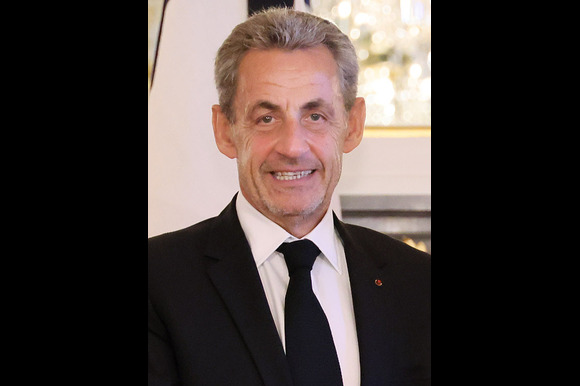Nicolas Sarkozy has made history as the first former president of France to go to prison, beginning a five-year sentence for conspiring to fund his election campaign with money from the late Libyan dictator Muammar Gaddafi.
Not since 1945, when wartime collaborationist leader Philippe Pétain was jailed for treason, has a French head of state been imprisoned. Sarkozy, who governed from 2007 to 2012, was taken to La Santé prison in Paris after his appeal failed to suspend the start of his sentence.
Emotional Departure and Support From Family and Followers
As Sarkozy left his residence in Paris’s exclusive 16th arrondissement on Tuesday morning, more than 100 supporters applauded and chanted his name. Holding hands with his wife, Carla Bruni-Sarkozy, he appeared calm. His son Louis, 28, had urged supporters to show solidarity, while another son, Pierre, asked them to send only messages of love.
At around 09:40 local time (07:40 GMT), Sarkozy’s car entered the gates of La Santé — a 19th-century, notoriously overcrowded facility in the Montparnasse district. Dozens of police officers sealed off the surrounding streets as the 70-year-old former president was escorted inside.
“It Is Not a Former President They Are Locking Up — It Is an Innocent Man”
Sarkozy maintains his innocence in what has become one of France’s most controversial political scandals — the so-called “Libyan money affair.”
In a message posted on X (formerly Twitter) just before entering the prison, he wrote: “I have no doubt. Truth will prevail. But how crushing the price will have been.”
“With unwavering strength I tell the French people: it is not a former president they are locking up this morning — it is an innocent man,” he continued. “Do not feel sorry for me because my wife and my children are by my side… but this morning I feel deep sorrow for a France humiliated by a will for revenge.”
Moments after his imprisonment began, Sarkozy’s lawyer Christophe Ingrain announced that a request for his release had already been filed. “Nothing justifies his incarceration,” said Ingrain, adding that the former leader could spend “three weeks or a month” inside before any ruling on his release request.
Life Inside La Santé Prison
Sarkozy has insisted he does not want special treatment. However, for his safety, he has been placed in the prison’s isolation wing, which houses high-risk detainees — including convicted terrorists and major drug traffickers.
His cell, located on the top floor, measures between 9 and 11 square meters (95–120 square feet). It contains a toilet, shower, desk, small electric hob, and a television for which he must pay €14 (£12) per month. He is also allowed a small fridge.
Though he has the right to family visits and outside communication, Sarkozy will live under near-total solitude, permitted only one hour of exercise daily in a private courtyard.
Former deputy head of La Santé, Flavie Rault, described conditions in isolation as “very hard.” Speaking to BFMTV, she said: “You are alone all the time. The only human contact you have is with prison staff. You never see another inmate for security reasons. The social isolation is difficult to bear.”
Macron Offers Sympathy and Darmanin Promises Oversight
Before beginning his sentence, Sarkozy was received privately at the Élysée Palace by President Emmanuel Macron. “It was normal, on a human level, to receive one of my predecessors in such a context,” Macron told reporters later.
Justice Minister Gérald Darmanin also announced he would visit Sarkozy in prison, calling it part of his duty to ensure both the former president’s safety and the proper functioning of the institution. “I cannot be insensitive to a man’s distress,” Darmanin said.
A Legacy Shadowed by Legal Troubles
Since leaving office in 2012, Sarkozy has been pursued by a string of criminal cases. For months, he was required to wear an electronic monitoring tag following a conviction last December for attempting to bribe a magistrate to obtain confidential information about another case.
Next month, France’s highest administrative court is expected to deliver its verdict on his appeal in the separate Bygmalion affair — another illegal campaign financing case — for which he faces a six-month jail term.
Speaking to La Tribune in an interview shortly before his imprisonment, Sarkozy said: “I’m not afraid of prison. I’ll keep my head held high, including at the prison gates.”
The Libyan Money Scandal
The case that sent Sarkozy to jail revolves around allegations that his 2007 presidential campaign was secretly financed with millions of euros from Muammar Gaddafi’s regime.
While Sarkozy was cleared of personally accepting Libyan funds, he was convicted of criminal association alongside two close allies — Brice Hortefeux and Claude Guéant — who were accused of managing illicit campaign contributions.
Investigators found that both men had held meetings in 2005 with Gaddafi’s brother-in-law and intelligence chief, arranged by Franco-Lebanese businessman Ziad Tiakeddine. Tiakeddine later died in Lebanon shortly before Sarkozy’s conviction.
“The Exceptional Seriousness of the Facts”
Despite lodging an appeal, Sarkozy was ordered to begin his sentence immediately due to what the court described as “the exceptional seriousness of the facts.”
The former president plans to spend his time in prison reading two books: La Vie de Jésus by Jean-Christian Petitfils and The Count of Monte Cristo by Alexandre Dumas — the classic story of a man wrongfully imprisoned who ultimately seeks justice against his accusers.



-1-150x150.jpg)


